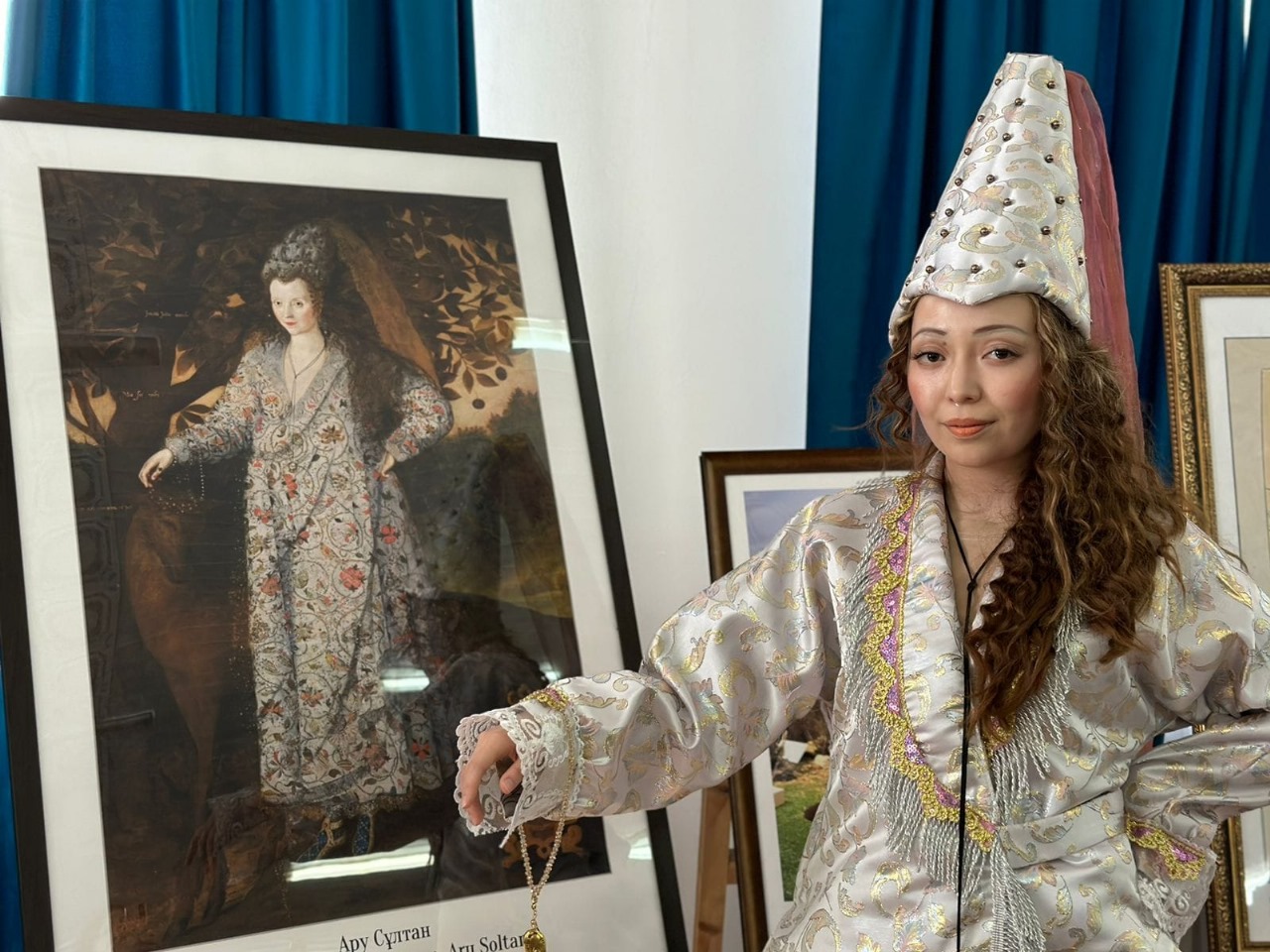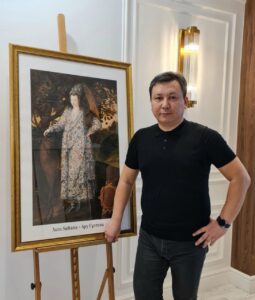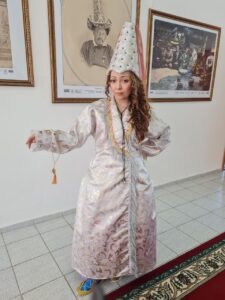ASTANA – Aura Soltana (Aru Sultan) served as the first diplomatic representative of the Kazakh State at the court of Queen Elizabeth I of England from 1557 to 1576. She holds the distinction of being the first representative from both the Islamic world and the Turkic world in England during the 16th century.

Aura Soltana (Aru Sultan) served as the first diplomatic representative of the Kazakh State at the court of Queen Elizabeth I of England from 1557 to 1576.
Under the reign of Khan Khaknazar (1538-1580), the Kazakh State gained significant geopolitical and economic power. Anthony Jenkinson, the envoy of Queen Elizabeth I, visited the Kazakh State from 1557 to 1572, establishing crucial bilateral relations with the Kazakh ruler. This led to the dispatch of a Kazakh diplomatic mission to London in 1561, led by Soltana, a close associate of Khan Khaknazar.
Contribution to cartography

Mukhit-Ardager Sydyknazarov.
The Kazakh State has been a prominent subject on the geopolitical stage of Eurasia, featured in both European and regional atlases. One of the most beautiful medieval maps depicting the Kazakh State was created by Jenkinson and Nikolaus Reynoldus.
This map includes detailed anthropological and ethnographically accurate illustrations of Kazakh life, economy, military traditions, and geopolitical relations. Kazakh life and customs are meticulously detailed through 15 images of Kazakh women, an unprecedented representation of women from a single state in European cartography.
These portrayals underscore the high status of women in Kazakh society in the 16th century, reflecting their freedom, education, and confidence, and showing how highly Kazakhs valued their women.
It is believed that Soltana, a knowledgeable and educated Kazakh informant, assisted Jenkinson in illustrating the map and organizing information about Kazakh history.
Influence at the English court
Soltana was the first female diplomatic representative of the Kazakh State in the 16th century at the court of Queen Elizabeth I. Her presence is a significant fact in Kazakh gender studies, demonstrating the high status of women in traditional Kazakh society. In her early years in England, Soltana gained respect and influence within the queen’s circle.

Reconstruction of Aru Sultan’s costume at Aktobe City School No. 31. Teachers Ornai Idirisova and Guldana Kalkamanova recreated the costume.
Her name, “Aru” translates from Kazakh as “beautiful” or “perfect in beauty”, while “Sultan” indicates noble lineage.
Upon arriving in England, she was given the additional name “Ippolita,” reflecting her Kazakh equestrian-nomadic origins. In ancient mythology, Ipolita was the queen of the warrior women, the Amazons. This additional name underscores the English court’s understanding and respect for Soltana’s background.
Why did the Kazakh State send a woman instead of a man? The Kazakh rulers, recognizing that England was successfully ruled by a woman, believed a female envoy would facilitate better diplomatic relations. Soltana, well-educated and fluent in Kazakh, Chagatai [an extinct literary Turkic language used in Central Asia], Arabic, Persian, and other languages, was chosen for this role. In London, she quickly mastered English and possibly other European languages, integrating swiftly into the English court.
Her presence and influence earned her respect and the title ‘a noble and influential lady from the inner circle of Elizabeth I’ in English chronicles.
On July 3, 1561, Queen Elizabeth conducted a symbolic christening ceremony for Soltana, becoming her godmother and gifting her a gold chain and medallion. In 1564, Soltana received royal livery, a customary display of loyalty and favor by the monarchy.
Soltana also advised Queen Elizabeth on fashion, introducing leather footwear—a traditional Kazakh item—to the English court. As a sign of gratitude and affection, the queen regularly gifted her specially ordered items.
Soltana continued her mission in London until her death in 1576. Her portrait, now housed in Hampton Court Palace in London, is labeled as an unknown woman, but researchers such as Bernadette Andrea and Janet Arnold have identified her as Aura Soltana Ippolita.
Mukhit-Ardager Sydyknazarov is Doctor of Political Science and Director of the ENU Institute of Modern Studies. Sydyknazarov was named Kazakhstan’s Goodwill Ambassador recognizing his remarkable contributions to enhancing Kazakhstan’s image abroad. The author explores historical maps testifying to the centuries-old history of Kazakh statehood.

